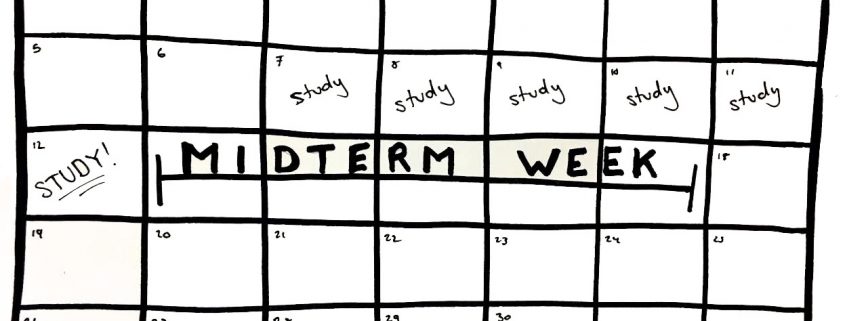COUNTERPOINT: Compressing midterms may not solve the issue
 The most dreaded time of the semester for USC students is undoubtedly finals week. The universal anxiety over impending grade-determining evaluations and the compact nature of final examinations have the combined effect of making students feel very stressed — and very unhappy. Finals week is widely known as the time of the semester when students don’t sleep, allow themselves to relax or even enjoy the company of other human beings. This means that midterms, which are currently spaced out according to each professor’s determined schedule, taking place over the course of one or two weeks would probably have a similar effect. There is simply no compelling reason to impose such a burden on students twice or more throughout the course of the semester.
The most dreaded time of the semester for USC students is undoubtedly finals week. The universal anxiety over impending grade-determining evaluations and the compact nature of final examinations have the combined effect of making students feel very stressed — and very unhappy. Finals week is widely known as the time of the semester when students don’t sleep, allow themselves to relax or even enjoy the company of other human beings. This means that midterms, which are currently spaced out according to each professor’s determined schedule, taking place over the course of one or two weeks would probably have a similar effect. There is simply no compelling reason to impose such a burden on students twice or more throughout the course of the semester.
Normally, midterm due dates are spaced out according to each instructor’s preference. In my experience, this typically means that more time in the semester is allotted for more time-consuming assignments, like midterm papers or multiple midterms for a single class. This general rule is not universal, but most professors are aware of the typical behavior of other professors and plan accordingly already. If midterms were compacted into a single week once or twice per semester, students would experience several periods of immense, concentrated stress. Additionally, if all midterms were relegated to a single week, students would no longer have the ability to prioritize and space out their work schedule in order to accommodate their individual circumstances.
Everything would be due all at once, and if there is one thing that is true of the typical college student, it is that they do not typically handle multiple large assignments due at once very well — hence the aforementioned fear of finals week.
Furthermore, bringing midterms together for one or two weeks may have negative effects on learning efficiency in the classroom. I know from personal experience that students typically see a drop in their performance in class sessions immediately following a midterm due date. Students are typically not mentally present during class on the day of or the day following a midterm. Finals are different in that once the examinations are over, classes do not continue, and so the effects stemming from mental exhaustion do not rear their ugly head quite so clearly in May. Treating midterms like finals will bring that mental exhaustion into play in the middle of the semester — exactly when many students need to be the most present in their classes.
The ad-hoc way that midterms are currently administered is not perfect — that much is freely admitted. But, scheduling all of students’ midterms into a single week or two likely will not improve matters. If anything, it will only take the stress that is more or less evenly distributed throughout the semester and compress it into one or two terrifying weeks. How this would help student academic performance after the more compact examinations are over is not immediately clear, especially in light of commonplace post-examination student behaviors like binge-watching television and attending parties that typically do not augment classroom learning.
Perhaps the bigger problem is not the way that midterms are currently administered, but rather the way that students sometimes approach their classwork. Many students do not do work until they have just enough time to complete it before their deadline. Moreover, students tend to spend a great deal of time engaging in non-academic pursuits that could be used more constructively. If students were to use that time wisely and prepared themselves more ahead of time, it may be that midterm season wouldn’t sting quite as much.
Trevor Kehrer is a senior majoring in political science. “Point/Counterpoint” runs Wednesdays.

